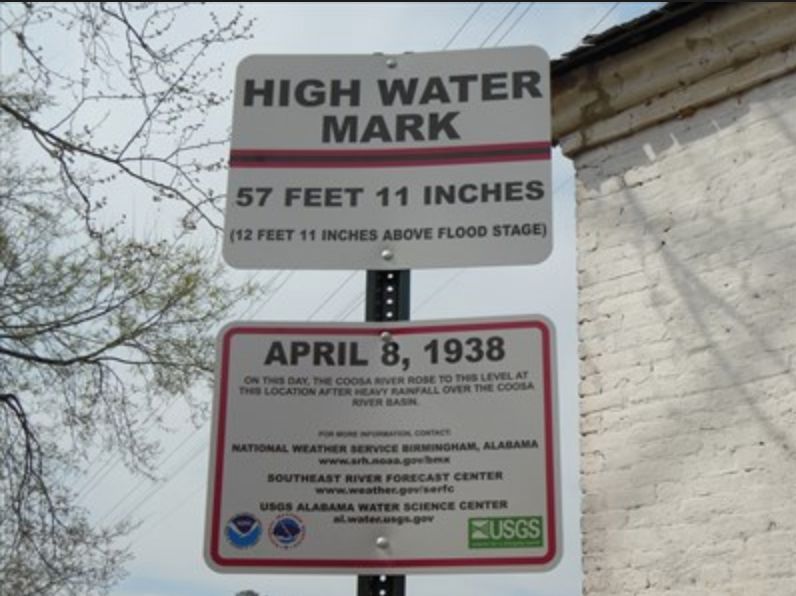A Slap In the Face of Morality
The OSCARS are a failing and fading symbol of Hollywood's death grip on American culture. Ratings have been steadily falling for years, in large part because of the way they love to lecture and berate the rest of us for our supposedly antiquated, unsophisticated morals and world view, all the while hypocritically value signalling and flaunting their own. Viewership has dropped over 80% over the last 20 yrs.
But the 94th Annual Motion Picture Academy of Arts and Sciences hit a new low, catching the public's interest for an on-air physical assault, as presenter Chris Rock took the stage and made a joke about actress Jada Pinkett Smith's shaved head. "Jada, I love ya. G.I. Jane 2, can't wait to see it."
Ms. Smith suffers from hair loss due to a physical condition, Alopecia, and she took great offense. Her husband, famed actor Will Smith, initially laughed at the joke, but then quickly recoiled, ran to the stage, and unceremoniously cold-slapped Chris Rock across the face.
"Will Smith just smacked the [profanity] out of me,” said a stunned Chris Rock.
“Keep my wife’s name out of your [profanity] mouth!” said an indignant Will Smith, twice.
Rock, in an effort to diffuse the situation, said the assault made for "the greatest night in the history of television."

"Hollywood has never been comfortable with traditional morals and values, so it is rather amusing seeing the industry struggling to figure out how to respond," says Not The Bee's Daniel Payne.
Payne continued:
Is Will Smith an heroic husband defending his wife's honor before a global audience? Is he a patriarchal caveman helping perpetuate toxic masculinity by using his fists to solve problems? You can see the tension there. Yet beyond the hopelessly convoluted politics of the moment is a deeper and more troubling dichotomy at play here: Will Smith's aggressive defense of his wife on the Oscars stage occurs alongside his complete and utter spousal neglect of her off the stage.
Will and Jada Pinkett Smith share a long history of marital dysfunction, engaging now, for years, in what they call an "open" marriage, i.e., they mutally agree to both date and have sexual relations with other people outside of their marriage.
"There are few more potent and enduring symbols of emasculated weakness and of bad husbandship," says Payne, "than a man standing by while other guys [take advantage of his wife] and make a mockery of their wedding vows."
We should note that Will Smith presumably [has affairs] with women in his own right, but of course that simply degrades his own personal integrity even further—if you can't defend your wife and your marriage from the impulses and the ego of your own sexual appetites, you're not much of a man or a husband, whatever else you may be.
Payne concludes:
These are, of course, the fruits of the sexual revolution: Disorder and chaos, disgust and decay. This has been known for decades. When you move away from the square-and-sober arrangement of real, actual marriage in favor of sexual licentiousness and mayhem and gluttony, it's never a good show.
And so at the Oscars this year we saw in Will Smith the curious, poisonous melding of the old order and the new, a mix of savage braggadocio and pathetic effeteness: a man striking another man for joking about his wife on stage while he allows numerous other men to make a far more sickening joke of his wife every other day of the year.
Will Smith feeling the need to violently defend his wife's dignity is, in a certain context, an admirable trait: Every man should be prepared to do so for his own wife, under the right circumstances. That he did so while also tolerating the obscenity of an "open marriage" exposes the incident for the meaningless, useless gesture it was.
Chris Rock may have been right when he called the assault "the greatest night in the history of television," if only because it revealed for us just how low our civilization has sunk, and how much lower we'll doubtlessly continue to go.
"Can a man carry fire next to his chest and his clothes not be burned? Or can one walk on hot coals and his feet not be scorched? So is he who goes in to his neighbor's wife; none who touches her will go unpunished" (Proverbs 6:27-29, ESV).
"Marriage should be honored by all, and the marriage bed kept pure, for God will judge the adulterer and all the sexually immoral" (Hebrews 13:4, NIV).
Jesus Is The High-Water Mark
A high-water mark is the maximum rise of a body of water over land. In the world of high finance, this term is used to refer to the highest value reached by an investment fund. In the Civil War, the high-water mark of the Confederacy was achieved at Cemetery Ridge near Gettysburg, Pennsylvania, the farthest point reached by Confederate forces during Pickett's Charge on July 3, 1863.
In the pursuit of morality, the high-water mark is found in the words and actions of Christ.

The high-water mark of morality isn’t loving those who love you but learning to love those who hate you. This high-water mark was first expressed by Christ when he said, “Love your enemies,” and it was first lived out by Jesus when he went to the cross to give his life for every sinner who, by their sins, made themselves the enemy of God.
If, contrary to your own nature, you are to rise to the level of God’s high-water mark of morality, you must turn to Jesus. He alone has made the way for you to follow, and only he can provide you and me with the love necessary to walk in it.
The Drowning Stranger Dilemma
This is from the Well Spent Journey blog.
Excerpt:
Here’s a thought experiment.
_____
Imagine that you’re a healthy, athletic, 20-year-old male. It’s the morning after a thunderstorm, and you’re standing on the banks of a flooded, violently churning river.
You notice an object floating downstream.
As it moves closer, you suddenly realize that this object is a person. The head breaks the surface, and you see a panic-stricken elderly woman gasping for air. You’ve never met her before, but vaguely recognize her as an impoverished widow from a neighboring village.
You look around for help, but there’s no one in sight. You have only seconds to decide whether or not to jump in after her – recognizing that doing so will put your own life in significant peril.
The author continues:
Is it rational for you to risk your life to save this stranger? Is it morally good to do so?
For the Christian, both of these questions can be answered with an emphatic “yes”.
The Christian is called to emulate the example set forth by Jesus, who not only risked, but sacrificed his life for the sake of others. The Christian believes that the soul is eternal, and that one’s existence doesn’t come to an abrupt end with death. Additionally, he can point to the examples of countless Christian martyrs who have willingly sacrificed their own lives.
For the secular humanist, the answers to these questions are much more subjective. When I previously asked 23 self-identifying atheists, “Is it rational for you to risk your life to save a stranger?” only 4 of them responded with an unqualified “yes”.
Biologically speaking, the young man in our scenario has nothing to gain by jumping after the drowning woman. Since she’s poor and elderly, there are no conceivable financial or reproductive advantages involved. Evolutionary biologists often speak of “benefit to the tribe” as a motivation for self-sacrifice…yet the young man’s community would certainly place greater practical value on his life than that of a widow from a neighboring village.
Secular humanists argue that people are capable of making ethical decisions without any deity to serve as Moral Lawgiver. On a day-to-day basis, this is undeniably true. We all have non-religious friends and neighbors who live extremely moral and admirable lives.
In the scenario above, however, secular ethics break down. The secular humanist might recognize, intuitively, that diving into the river is a morally good action. But he has no rational basis for saying so. The young man’s decision is between empathy for a stranger (on the one hand) and utilitarian self-interest & community-interest (on the other).
In the end, there can be no binding moral imperatives in the absence of a Moral Lawgiver. If the young man decides to sit back and watch the woman drown, the secular humanist cannot criticize him. He’s only acting rationally.